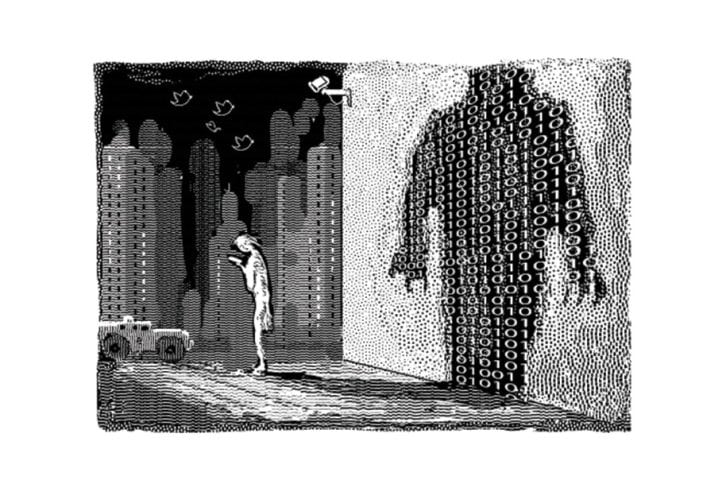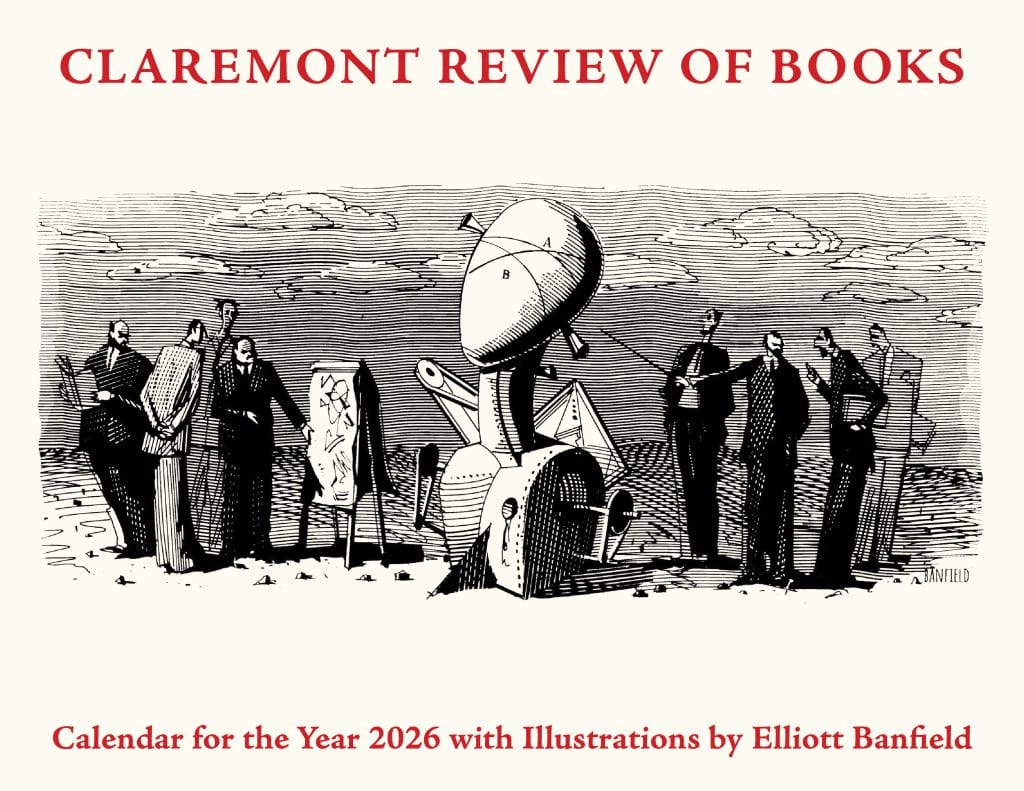In February 1945, when President Franklin Roosevelt received Ibn Saud on the deck of the USS Quincy, the king was a supplicant. When President Barack Obama delivered his 2009 speech in Cairo, he was the supplicant, and the symbol of an abdication that usually takes centuries. Not long ago, the Sixth Fleet, backed by NATO's gargantuan military power, was the clear arbiter in the Middle East; the region even at war was more stable than it is now; and the Russians were virtually banished from it for 35 years. All that is changed.
The erosion began late in the '70s when the U.S. failed to respond appropriately to terrorist provocation, and continued through two decades at the end of which America's and NATO's military capacities had been vastly reduced, and the diplomacy of the West (excepting at times France) was transformed from a means of choreographing national interests and balances of power to a primarily moral instrument calibrated by the heart strings of public opinion.
Possessed by the ghost of Woodrow Wilson, Democrats made their salient principle protecting the oppressed, the rights of women, endangered animals, and the environment; Republicans, the rescue and transformation of peoples and nations. Were such guidance applied without prejudice, the resources of the United States would dissipate in a week. Instead, we pick and choose according to ideological preference, the persuasive power of various interests, and the fancies of the elite, not for the first time making of our international relations a mysterious hodgepodge that terrifies our allies (is it not dangerous to be a friend of the United States?) and delights our enemies.
We have brought to power many of our adversaries, who must watch in astonishment as President Obama spews vituperation upon his American political opponents (literally screaming, like no president in living memory, or perhaps ever) while exercising inexhaustible patience and politesse with murderous anti-American tyrants. Hard at home, soft abroad, much of our policy is simply inexplicable. For example, the administration's conviction that the stability of the Middle East hinges upon the Palestine Question hardly comports with the long history and violent present of inter-Arab and inter-Muslim conflict, often at vast geographical and cultural remove from Jerusalem. We have wasted ourselves in such blind allies for generations.
But had we used our once overwhelming power, as often advocated in these pages, to obliterate terrorist infrastructure and hold accountable countries in which it took root; had we set up compliant generals in Baghdad, wheeled the army left to do the same in Damascus, and settled safely along the Saudi-Iraqi border, with the promise to spring back if our clients proved uncooperative; had we not abandoned friendly regimes and factions in Iran, Turkey, and Egypt; had we struck Iranian nuclear manufacture before it sheltered in bedrock; had we retained more air wings and aircraft carriers and not cut the navy by more than half; had we been more supportive of allies; and had we refrained from promiscuous apology, and building nations with which we were at war…things would have been different.
* * *
But, no. Iran is on the verge of acquiring nuclear weapons and has driven a radical wedge from Afghanistan to the Mediterranean. Much of the Middle East is in flames. And Russia crows as if risen from the dead, while Obama somehow thinks he has Vladimir Putin right where he wants him. The Iranians in particular have had a great deal of fun, transparently lying to the West over decades as they are given chance after chance. They flirt and withdraw, flirt and withdraw, ever more sadistically as a repeatedly snubbed President Obama continues to run after them. Although the president thinks the end of the diplomatic road is a settlement, it has long been clear to any sentient being that the end of this road is the flash of a nuclear detonation.
Perhaps the United States will escape its many gratuitous failings as it rests in the safety imperfectly assured by the great expanse of the oceans, and as the Middle East taxes its own strengths in war after war. For its wars, atrocities, coups, schisms, and collapses represent not only threats but their diminution as the region is stressed. Nonetheless, the chaos gives rise to forces that even if fractionated and small will remain a danger of the first order in light of nuclear, chemical, and biological weapons.
Although the Middle East has always been and should always be a secondary theater, for the weak hand, we have given it the attention of the strong hand, and failed. We fail because we are not willing to do the difficult things we had always come around to when facing clear and present dangers. Yet it is not impossible to do them.
It is possible to reconstitute the American military, with surplus reserves, so as to obviate challenges before they arise and never to be caught short when facing either a great power or a terrorist network. It is possible, and traditional, to adjust domestic economic expectations to whatever extent so as to insure the adequate defense of the nation. It is possible to intervene rarely, at the right time, in the right place, for limited duration, and with quick overkill, as in the Gulf War. It is possible to be wary of nation-building. And it is possible to go to war only when the whole people, through Congress, expresses its constitutional consent. This is the way it used to be, the way it should be.
China, Russia, and nameless potential adversaries are witness to America's collapse in the Middle East, the foolishness and gullibility of its diplomacy, the spectacular degradation of its military. Should the same pattern emerge in more consequential areas, as it is now emerging in Asia, the sovereignty and survival of this nation as we have known it will eventually be put at risk. This should be the great, central, and compelling question of the next presidential election, to wake America from its sleep.






